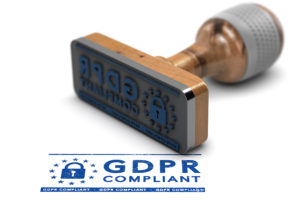GDPR – What you need to know as a holiday homeowner
Last Updated on May 16, 2018 by admin
 Many of you will have by now heard of GDPR (the General Data Protection Regulation). However there still remains a degree of confusion around what holiday homeowners need to do in order to comply. The new legislation on how we all handle data comes into force on 25th May 2018.
Many of you will have by now heard of GDPR (the General Data Protection Regulation). However there still remains a degree of confusion around what holiday homeowners need to do in order to comply. The new legislation on how we all handle data comes into force on 25th May 2018.
So what is changing and why does it affect you as a holiday homeowner?
The new regulations are designed to supersede the Data Protection Act (DPA) 1998.
Why the need for change? Simply because the old Act no longer represents the internet today; if you think of the changes in technology over the past twenty years it’s completely understandable that the old legislation has become outdated.
The new legislation builds upon the DPA (which we should all be adhering to already); it makes some slight alternations in order to fit with modern methods of marketing and the way data is often used in today’s world.
Its aim is to attempt to stop poor use and the abuse of data; not to catch small businesses or holiday homeowners out and issue fines. Therefore if you’re a holiday homeowner that only uses data in a responsible way then the changes should be embraced.
What does it mean for your email lists?
Most holiday homeowners will use email to communicate with, and market to potential guests. The new GDPR legislation won’t stop you from doing this, but there are a few things that you need to be aware of:
- If you’ve bought an email list then you’ll no longer be able to use them after 25th May 2018; unless you’re able to get them to opt-in to receiving emails from you before that date.
- The same logic applies to any competitions you’ve run. It’s not uncommon for holiday homeowners to run initiatives that offer an incentive or prize in exchange for their email address. If you’ve run this type of competition, then it is again imperative that you’ve gained an opt-in from entrants to receive emails from you. If in doubt, then it would be recommended that you no longer contact them unless you can gain their permission.
- The new regulations make reference to ‘current customers’, which could potentially be something of a grey area; afterall what constitutes ‘current’? Generally, if you’ve been sending emails on a regular basis to someone that has previously stayed with you, and they’ve not opened any in the past year then it would be sensible to remove them. Aside from regulations, it’s best practise to cleanse your data like this on a regular basis to ensure you’re only sending to those interested in your content.
The common theme throughout the GDPR is that you need to have up to date data. Also those on your lists need to have signed up to receive your emails and be engaged with them. Now is the time to get your data in order, conduct an audit and establish where it came from. Doing this will allow you to stay the right side of the well intentioned law!
Guide to the General Data Protection Regulation (GDPR)
The best resource to help businesses including holiday homeowners prepare for the General Data Protection Regulation is available by clicking the link below:
Further guidance is also available in the VisitBritain Pink Book Online:
If you require precise or detailed information on the legislation mentioned in this article, or on the legal implications for you in particular, you should consult a professional legal adviser.
Boshers offer specialist holiday home insurance to owners across the UK. For information on how specialist insurance can help protect your holiday home business, call us on 01237 429444








Leave a Reply
Want to join the discussion?Feel free to contribute!